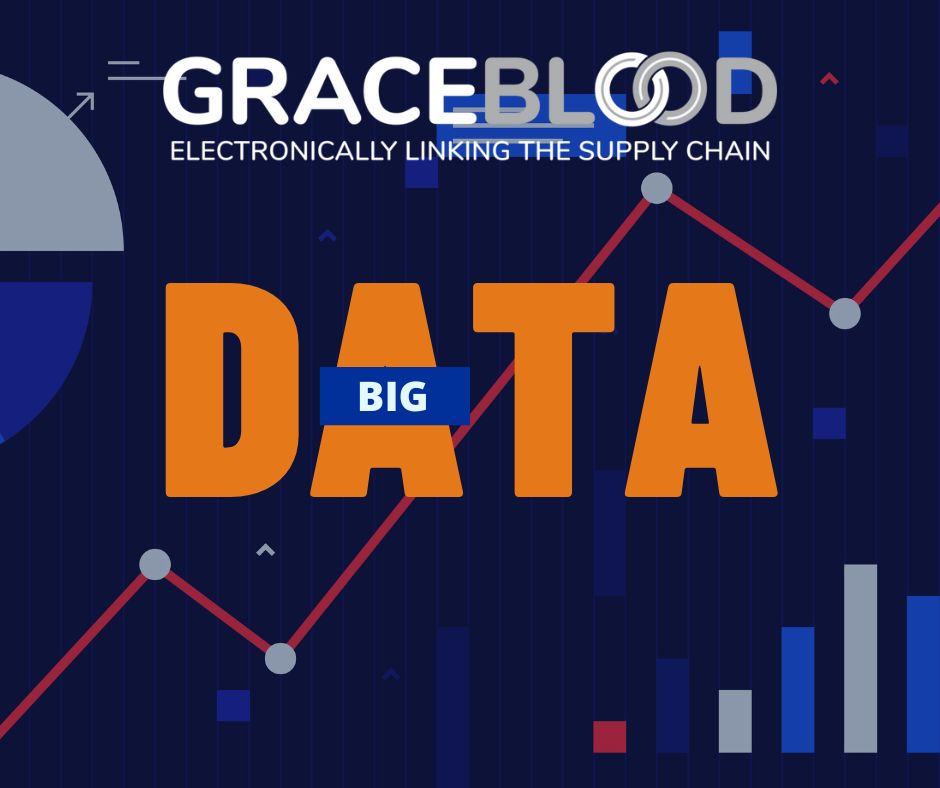
Electronic Data Interchange (EDI) is no longer just a technical solution; it’s a strategic asset that impacts every department within an organization. While the core function of EDI technology is to facilitate the electronic exchange of business documents like purchase orders and invoices, the EDI benefits go far beyond data transfer. When properly implemented, EDI can improve operational efficiency, reduce costs, and strengthen trading partner relationships — but the value looks different depending on your role.
In this blog, we’ll examine the key benefits from the perspectives of the CFO, CIO, CEO, Customer Service, Sales, and Fulfillment teams. Whether you’re trying to build a business case or get buy-in from other departments, this guide will help clarify what’s in it for each stakeholder.
Table of Contents
- EDI Benefits for the CFO
- EDI Benefits for the CIO
- EDI Benefits for the CEO
- EDI Benefits for Customer Service
- EDI Benefits for Sales Teams
- EDI Benefits for Fulfillment Teams
EDI Benefits for the CFO💲💲💲
The Chief Financial Officer is focused on financial health, cost control, and reporting accuracy. EDI supports these goals with tangible and measurable outcomes.
Operational Cost Savings
One of the most immediate EDI benefits for a CFO is the significant cost savings. EDI eliminates manual data entry, reduces paper usage, and lowers labor costs associated with processing EDI documents.
- A seamless exchange results in fewer errors which leads to less money spent on exception handling.
- Reduced postage, printing, and storage costs.
- Streamlined invoice processing results in faster payments and improved cash flow.
Improved Financial Visibility
With EDI, the exchange of information flows in real time. This offers the CFO accurate and timely insight into accounts payable, receivable, and inventory costs.
- Better forecasting and budgeting through real-time data integration.
- Easier compliance with financial reporting standards.
- Reduced risk from duplicate payments or incorrect billing.
Risk Mitigation and Compliance
Many industries have strict compliance requirements. EDI ensures that financial transactions are traceable, auditable, and secure.
- Automated document trails support regulatory audits.
- Error-free data reduces financial discrepancies.
- Built-in validation helps ensure contract terms are met.
EDI Benefits for the CIO 🖥️🖥️🖥️
The Chief Information Officer plays a crucial role in selecting EDI implementation and maintaining technology that is secure, scalable, and efficient. EDI directly supports these responsibilities.
System Integration and Data Exchange Accuracy
CIOs are constantly looking for ways to integrate disparate systems. EDI serves as a backbone for connecting ERP (enterprise resource planning), WMS, and other business systems.
- Eliminates data silos across departments.
- Promotes a single source of truth through automated data sync.
- Supports digital transformation initiatives.
Enhanced Security and Data Governance
EDI protocols are designed with data security in mind. Unlike emails or faxes, EDI transactions are encrypted and follow industry standards.
- Reduces exposure to cyber threats and data leaks.
- Ensures consistency with data privacy regulations (like HIPAA or GDPR).
- Improves visibility into data flow and document lifecycle.
Scalability and Future-Proofing
Modern EDI solutions are built to scale with business growth.
- Easily onboard new trading partners.
- Support for multiple data formats (X12, EDIFACT, XML, JSON) enables flexibility.
- Cloud-based EDI options reduce infrastructure overhead and enhance uptime.
EDI Benefits for the CEO 💼💼💼
From the CEO’s seat, EDI is a lever for strategic advantage, innovation, and business growth. It touches almost every KPI at the organizational level.
Increased Business Agility and Supply Chain Efficiency
In fast-moving markets, being able to respond quickly to demand shifts, supply chain disruptions, or customer changes is crucial.
- Real-time document exchange across partners accelerates decision-making.
- Faster order-to-cash cycle improves financial resilience.
- EDI supports B2B eCommerce, enabling new revenue streams.
Strengthened Strategic Partnerships
For many CEOs, relationships with customers and suppliers are key differentiators. The EDI process strengthens these ties.
- Compliance with major retailers and logistics partners via EDI standards and partner specifications.
- Reduced errors and delays lead to better partner satisfaction and increased productivity.
- Seamless integration makes your company easier to do business with.
Competitive Advantage
As more industries move toward automation and AI, EDI lays the groundwork.
- Sets the foundation for AI-driven analytics and demand forecasting.
- Positions the company as a forward-thinking, digitally mature player.
- EDI compliance can be a requirement for entering certain markets or securing trading partner agreements.
EDI Benefits for Customer Service ☎️☎️☎️
Customer Service teams are on the front lines of issue resolution and experience delivery. EDI makes their jobs easier and more effective.
Faster Issue Resolution
When data is correct and accessible, problems are resolved quicker.
- Fewer billing and shipping errors to address.
- Easy access to order status and shipping details.
- Standardized responses based on reliable data.
Higher Customer Satisfaction
Accurate and timely communication boosts trust.
- On-time deliveries through automated fulfillment processes.
- Real-time order confirmation and status updates.
- Fewer backorders or missed shipments.
Less Manual Work, More Customer Focus
Automation frees up time for proactive engagement.
- Customer service reps can focus on relationship-building, not data entry.
- Less time spent tracking down paperwork or correcting mistakes.
- Ability to respond to inquiries with confidence and speed.
EDI Benefits for Sales Teams 📈📈📈
Sales teams are focused on closing deals, maintaining relationships, and expanding accounts. EDI can be a powerful tool in their arsenal.
Faster Order and Transaction Processing
Sales reps can close deals knowing that fulfillment will be fast and accurate.
- Instant order transmission to warehouse or suppliers.
- Real-time visibility into inventory and pricing.
- Shorter quote-to-cash cycle.
Improved Partner Relationships
Reliable order fulfillment builds trust and long-term value.
- EDI compliance is often required by large accounts.
- Transparent processes make the company a preferred supplier.
- Fewer disputes and returns improve partner satisfaction.
Access to Actionable Insights
Sales teams can leverage integrated EDI data for smarter selling and streamlined business processes.
- Analytics reveal purchasing trends and seasonal patterns.
- Forecasting tools help identify upsell and cross-sell opportunities.
- Centralized access to customer and order data ensures all touchpoints stay aligned.
EDI Benefits for Fulfillment Teams 📦📦📦
From warehouse management and inventory management to shipping, the Fulfillment team plays a vital role in delivering on promises made by the business. A key advantages for business operations includes driving greater accuracy and speed across processes.
Streamlined Warehouse Operations
EDI automates warehouse communication, from pick tickets to shipping notices.
- Faster order turnaround through real-time updates.
- Automated inventory adjustments upon receipt and shipment.
- Reduced paperwork and manual reconciliation.
Fewer Errors and Returns
Accuracy in picking, packing, and shipping starts with accurate data.
- Validated order data minimizes wrong shipments.
- ASN (Advance Ship Notice) functionality prepares recipients for delivery.
- Labeling and packaging instructions included with each transaction.
Better Coordination Across the Supply Chain
Fulfillment doesn’t stop at the warehouse. EDI enables logistics coordination.
- Real-time tracking integration with carriers.
- Faster bill of lading and freight invoice generation.
- Fewer dock delays thanks to standardized shipping documentation.
Making the Case for EDI Systems Across the Org Chart
Whether you’re focused on financial accuracy, system scalability, strategic growth, or operational excellence, EDI benefits every function in a modern organization. Yet too often, EDI is viewed as “just an IT thing.”
The truth is, EDI is a business transformation tool.
By highlighting the distinct value electronic documents bring to each stakeholder — from the CFO who sees cost reductions, to the Customer Service team that gains real-time visibility — you can build a more compelling case for adoption, expansion, or modernization of your EDI systems.
Ready to Take EDI to the Next Level?
If your organization is ready to realize these cross-functional benefits, it’s time to invest in an EDI strategy that includes automation, integration, and partner compliance. Whether you’re upgrading legacy systems or starting from scratch, choose a solution that aligns with the needs of every role in your organization. Let’s talk about how our solutions can streamline your business operations, improve partner satisfaction, and drive measurable results. Contact us today to get started.








